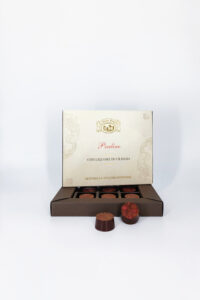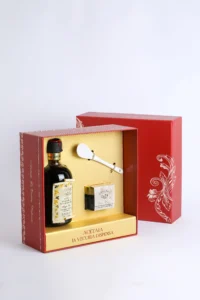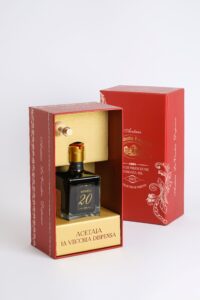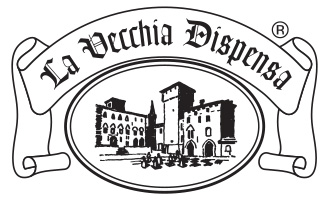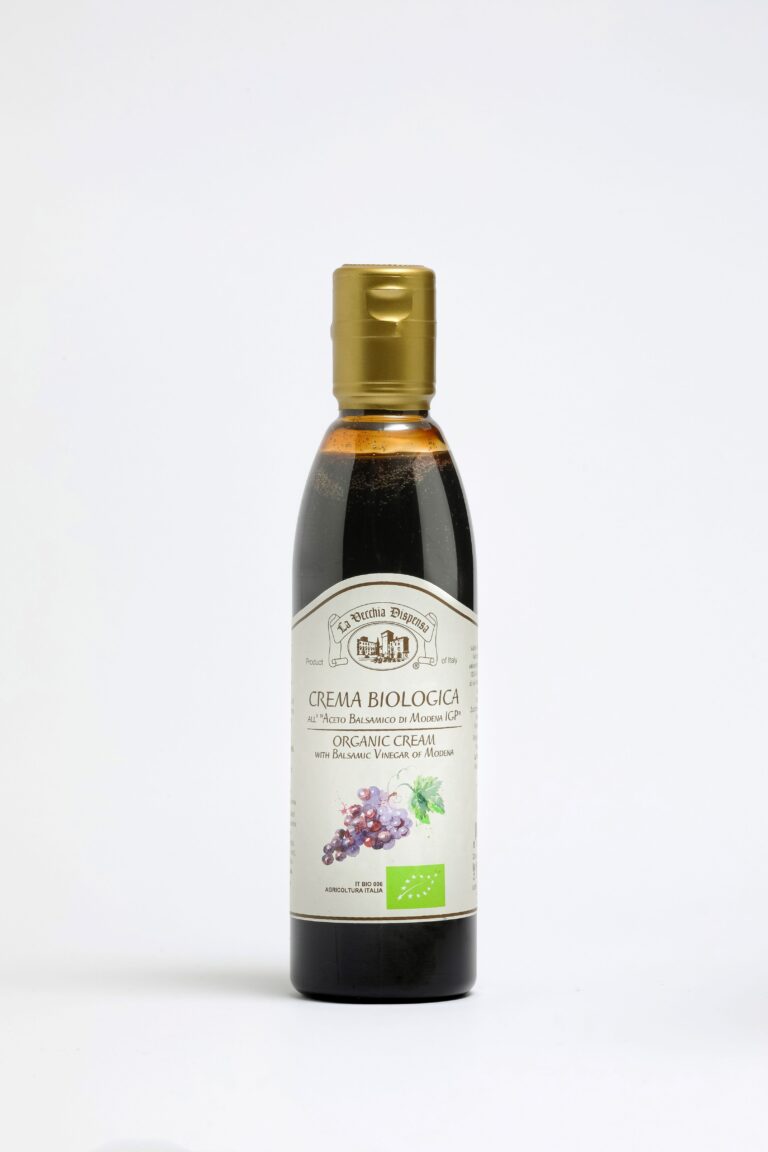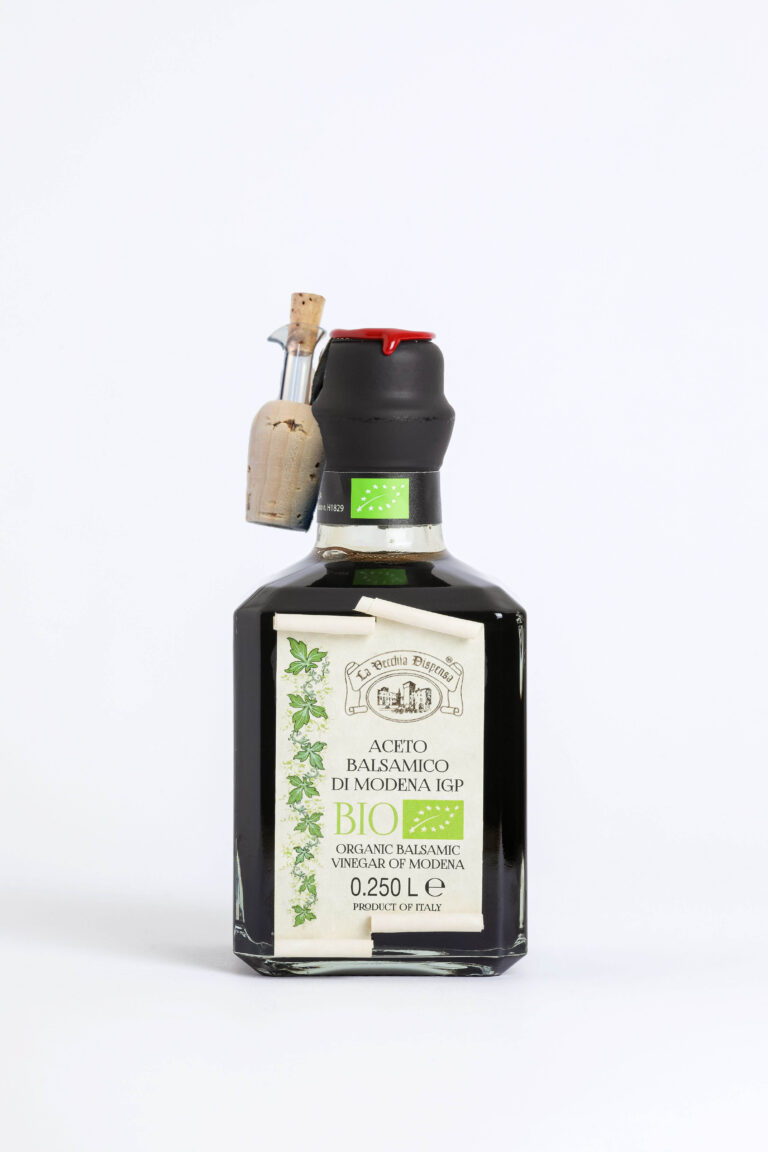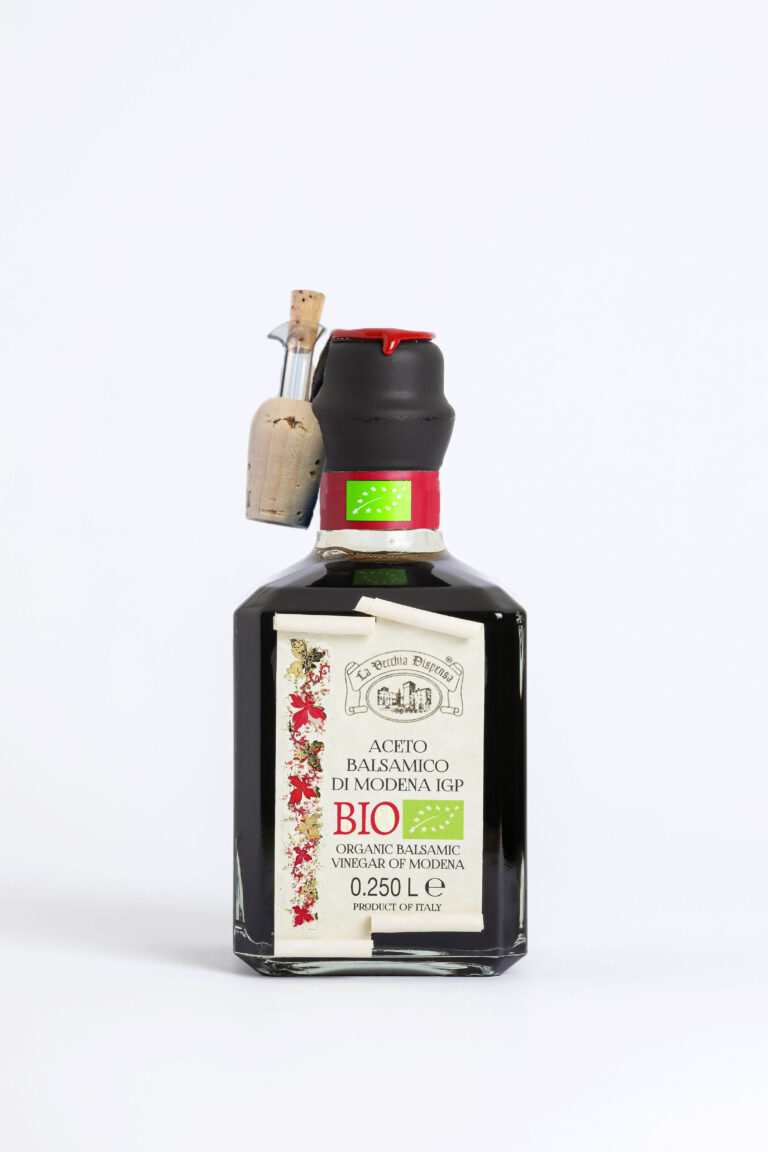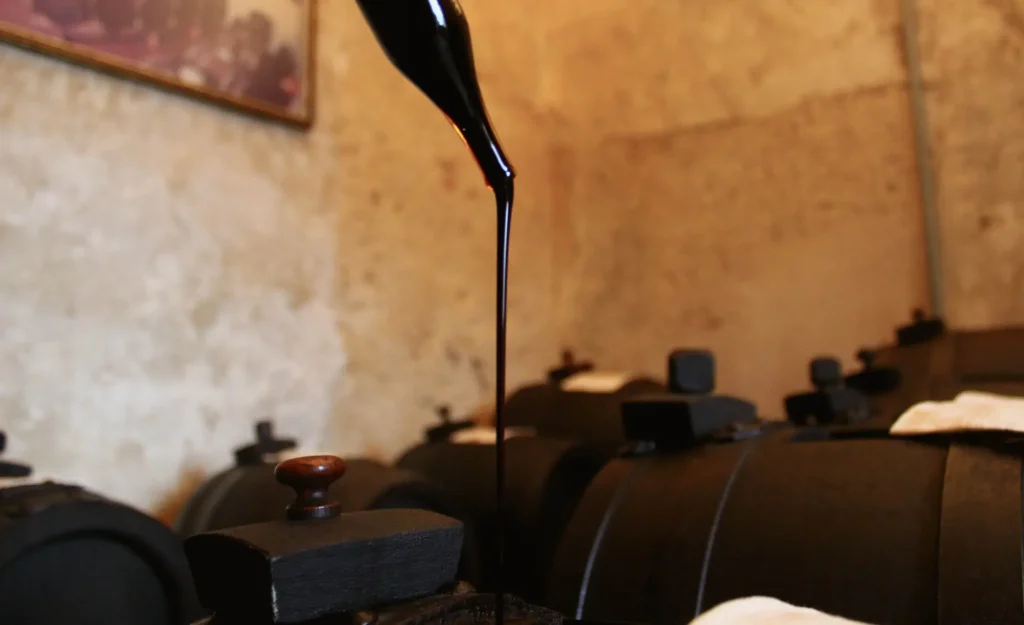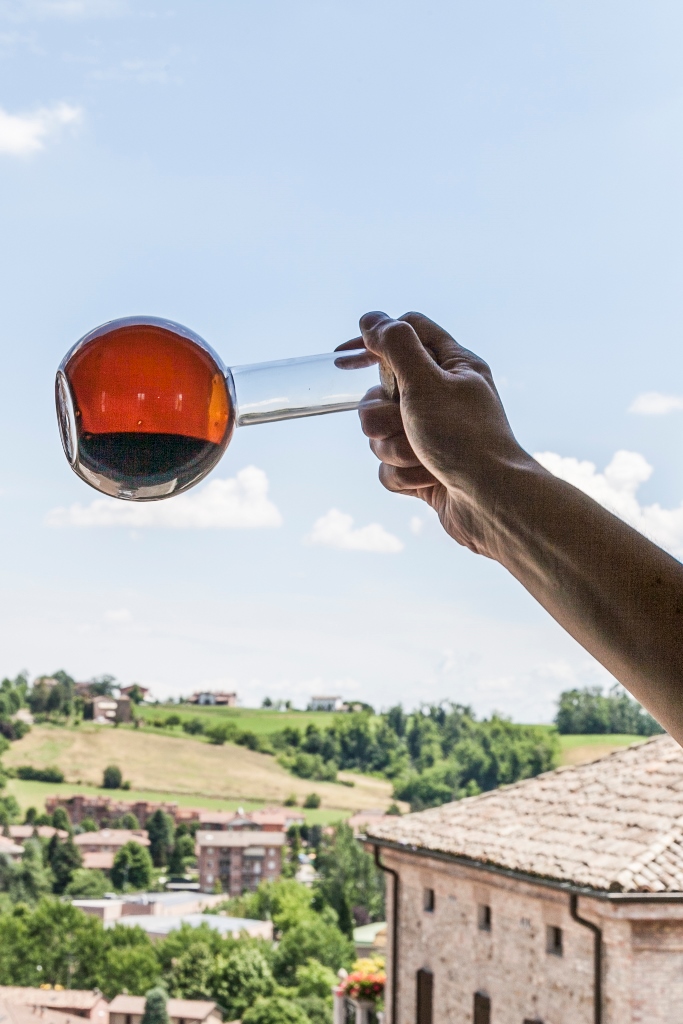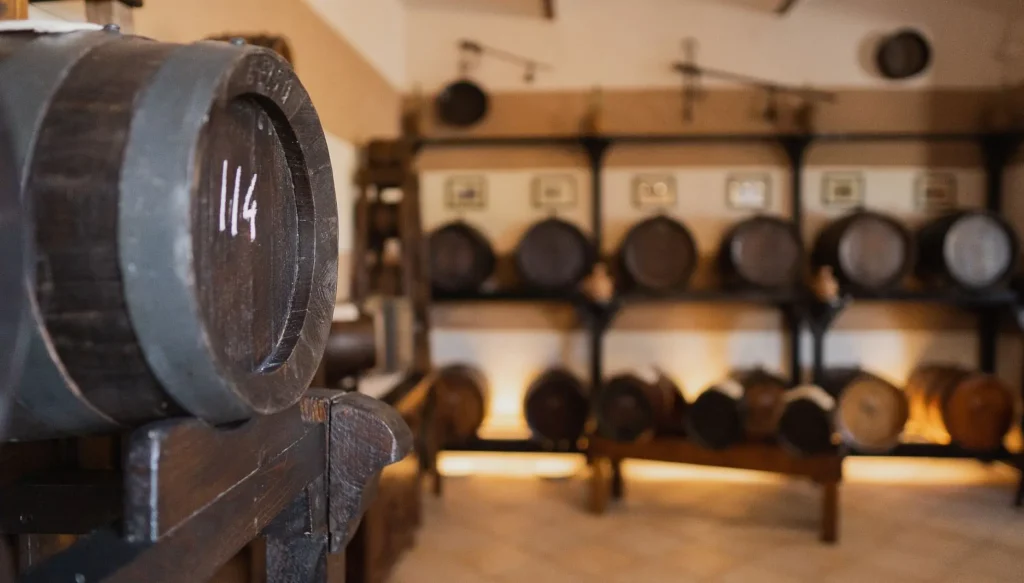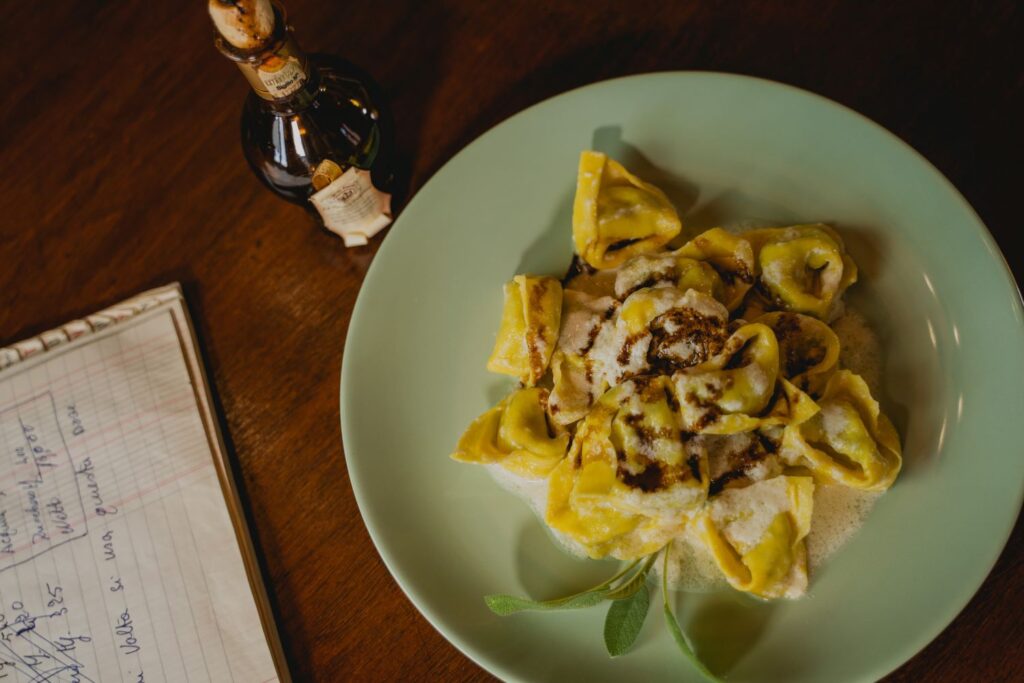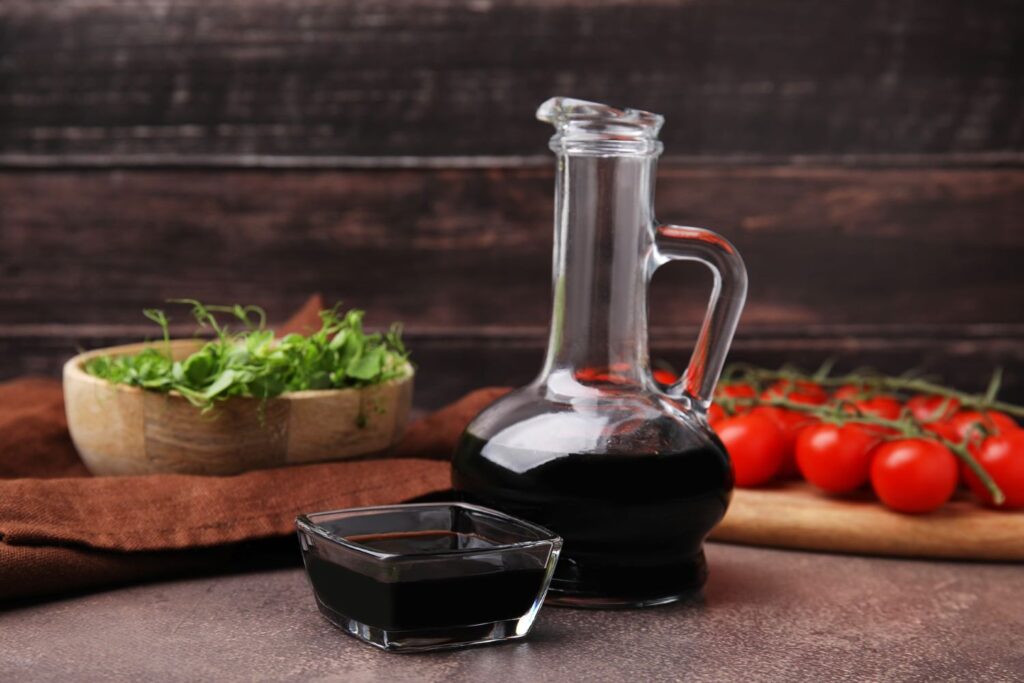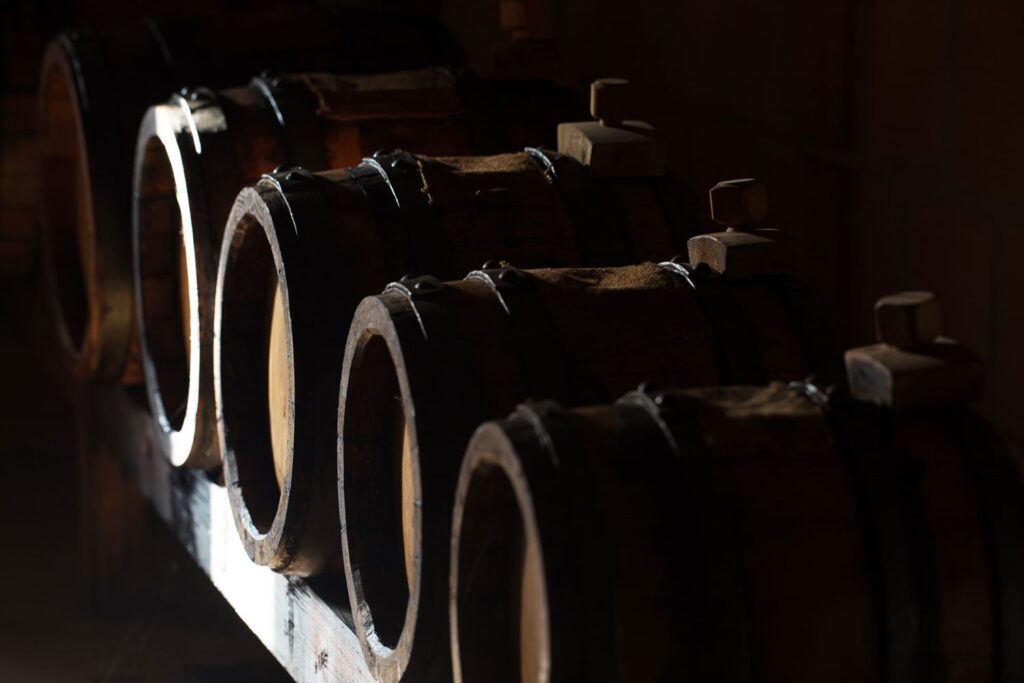Balsamic Vinegar glaze is well known all around the world. This versatile sweet and sour condiment is used to garnish pizzas, fried foods, meats, desserts, salads and side dishes, and it is capable to perform perfectly well when it is about original decorating of the dishes. Available at a very low price, this product has seen a significant demand increase during the last years, since the worldwide Covid-19 pandemic has forced us (in the sweetest sense of the term) to rediscover the passion for cooking.
But is this Balsamic Vinegar Glaze so different from a classic Balsamic Vinegar of Modena PGI? What are the differences, and what is it indicated for? Let’s find it out together, analyzing the ingredients, health benefits and its adaptability to the diets of those who suffer from intolerances.
Ingredients of Balsamic Vinegar Glaze
Balsamic Vinegar Glaze is normally produced with Balsamic Vinegar of Modena PGI, concentrated grape must and thickeners (corn starch); occasionally some products may contain the coloring Caramel (E150).
Thus, we can surely state that Balsamic Vinegar Glaze derives directly from the elaboration of Balsamic Vinegar of Modena PGI. The latter must be produced only and exclusively in the province of Modena and has to follow the specific production regulation (the compliance to the regulation is guaranteed by a specific body). The glaze, on its turn, may be produced all over the world and there is no specific regulation to follow (it doesn’t get aged and never enters in the wooden barrels).
Is Balsamic Vinegar Glaze Harmful?
A sporadic consumption of Balsamic Vinegar Glaze, which we remind you has to remain a garnish for the meals and cannot be used as a salad seasoning like Balsamic Vinegar of Modena PGI, is not harmful to the body. Obviously, as every food it has to be consumed in limited quantities. This rule is important to apply especially in the case of low-quality products, which are easily identifiable by ingredients list. In fact, balsamic glaze is not harmful, but if it contains a low percentage of Balsamic Vinegar of Modena PGI, which is often accompanied by the presence of Caramel coloring E150, neither it is going to be beneficial to the body.
Gluten and Balsamic Vinegar Glaze
The Italian Celiac Association (ICA) reports on its official website that “Traditional Balsamic Vinegar of Modena PDO, Traditional Balsamic Vinegar of Reggio Emilia PDO, Balsamic Vinegar of Modena PGI, non-PDO and non-PGI balsamic condiments, if consisting only of cooked grape must, wine vinegar and sulfites can be calmly consumed by celiacs.”
In other words, Balsamic Vinegar Glaze, or as it often called, Balsamic Vinegar Cream, is a risk product, and a celiac should carefully check the label of every single product to get assured there is the “Gluten Free” sign.
Balsamic Vinegar Glaze during Pregnancy: Is It Safe?
Pregnant women have to be particularly careful to identify what they have to avoid in order not to damage the development of their child and what instead is suitable for their diet. Fortunately, Traditional Balsamic Vinegar of Modena PDO, Balsamic Vinegar of Modena PGI and Balsamic Vinegar Glaze are safe products for pregnant women. But there is more: since it is not recommended to use abundantly salt and oil, it is always good to season salads and vegetables (washed well!) with Balsamic Vinegar of Modena PGI, adding a drizzle of Balsamic Vinegar Glaze to garnish!
The only contraindication. For those who suffer from severe reflux and heartburn, it is recommended not to assume acidic foods and condiments. Don’t worry! You can start using Balsamic Vinegar again, probably opting for an excellent bottle of our Organic Balsamic Vinegar as soon as you have the new life you carry in your womb in your loving arms!
